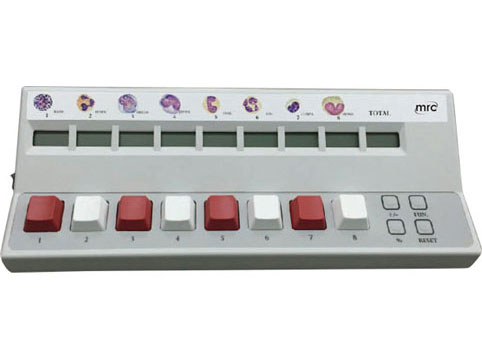Blood comprises different types of cells, each with distinct functions vital for the body's overall health and functioning. Understanding these cells is fundamental to comprehending the importance of a blood cell counter.
Types of Blood Cells
Blood cells can be broadly categorized into three main types: red blood cells (RBCs), white blood cells (WBCs), and platelets.
Functions of Each Blood Cell Type
RBCs primarily carry oxygen to tissues, WBCs are essential for immune responses, and platelets play a crucial role in blood clotting.
What is a Differential Blood Cell Counter?
A differential blood cell counter is a sophisticated medical instrument designed to analyze and quantify the different types of blood cells present in a given sample. Its primary objective is to provide valuable insights into a patient's health status.
The differential blood cell counter precisely counts and categorizes blood cells based on their morphology and staining properties.
It serves as a cornerstone in diagnosing various hematological disorders, infections, and systemic diseases.
Components of a Differential Blood Cell Counter
A differential blood cell counter comprises several integral components that work synergistically to achieve accurate and reliable results.
Analytical Instruments
These include optical sensors, flow cytometers, and microscopy platforms, which are used to visualize and analyze blood samples.
Software and Algorithms
Sophisticated algorithms and software programs are employed to process and interpret the data obtained from the analytical instruments.
How Does a Differential Blood Cell Counter Work?
The operation of a differential blood cell counter involves a series of automated processes governed by established principles.
Automated Counting Process
Samples are prepared and loaded onto the instrument, where they undergo automated staining, analysis, and cell counting.
Principles of Cell Counting
Various techniques such as impedance-based counting, flow cytometry, and image analysis are utilized for precise cell enumeration.
Applications of Differential Blood Cell Counters
Differential blood cell counters find extensive applications in both clinical and research settings, owing to their versatility and reliability.
Clinical Settings
They are indispensable tools for diagnosing hematological disorders, monitoring treatment responses, and assessing overall patient health.
Research and Development
In research laboratories, these counters facilitate the study of blood cell kinetics, disease mechanisms, and therapeutic interventions.
Advantages of Using Differential Blood Cell Counters
The utilization of automated blood cell counters offers numerous benefits over manual counting methods.
Accuracy and Precision
They provide highly accurate and reproducible results, minimizing human error and variability.
Time Efficiency
Automated counters significantly reduce turnaround times, enabling rapid diagnosis and treatment initiation.
